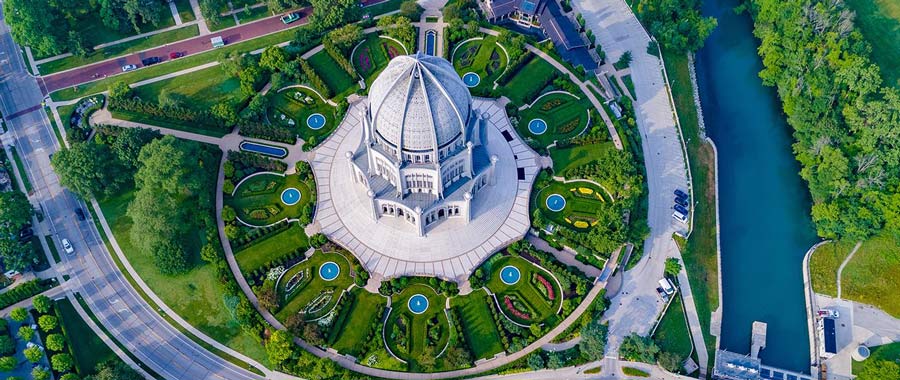In contemplating the challenges posed by pandemics, one often observes an extraordinary juxtaposition: while societies experience profound disruption, they simultaneously forge unprecedented opportunities for collective transformation. This phenomenon invites a critical exploration of Bahá’í teachings, particularly in their advocacy for building a global framework—coined the “Communisphere”—that aspires to transcend the adversities wrought by such crises. Such teachings not only elucidate the interconnection of humanity but also furnish a robust ethical compass for navigating the turbulent waters of contemporary life.
The term “Communisphere” encapsulates a vision wherein individualities harmonize to create a cohesive and inclusive global community. It implies a space that supports diverse cultures and beliefs, facilitating dialogues and collaborations that resonate across geographic and ideological divides. Central to this concept is the Bahá’í principle of unity in diversity, which posits that humanity, despite its myriad differences, is inherently united. This ideological foundation is essential in addressing the multifaceted implications of pandemics, which often exacerbate existing societal fractures, such as economic disparity, health inequity, and social injustice.
One of the core tenets of the Bahá’í faith is the pursuit of knowledge as a means of fostering understanding. This pursuit becomes all the more imperative in an age plagued by misinformation and fear. In the context of a pandemic, the inclination towards knowledge can serve as a beacon, guiding public discourse and fostering a well-informed populace. This communal quest for comprehension not only addresses immediate health concerns but also nurtures a culture of shared responsibility. Everyone has a role to play in safeguarding the well-being of their neighbors, thus embodying the practical application of the Communisphere.
Moreover, the Bahá’í perspective emphasizes the importance of moral and ethical considerations alongside scientific advancements. The lessons gleaned from historical pandemics reiterate the necessity of integrating ethical frameworks into public health responses. For instance, governments and health organizations must prioritize equitable access to resources and care, ensuring that marginalized communities are not left behind in times of crisis. This alignment of moral imperatives with practical actions aligns seamlessly with the Bahá’í teaching that a just society is a sustainable society.
In the quest to build a Communisphere, the notion of collective action emerges as pivotal. Collective actions, especially in response to pandemics, can facilitate the emergence of resilience. Efforts such as mutual aid networks, community support groups, and collaborative initiatives exemplify how individuals can unite their strengths for communal empowerment. Such cooperation aligns with the Bahá’í emphases on service to humanity; by rallying together, individuals transcend personal hardships and contribute to a greater good, thus fostering a spirit of solidarity.
An integral aspect of the Bahá’í approach is the concept of consultation. This process encourages open and honest dialogue among diverse stakeholders, eschewing adversarial exchanges in favor of collaborative problem-solving. Such practice becomes exceptionally relevant in pandemic scenarios; facilitating consultations among health officials, community leaders, and the populace can engender trust and ensure that policies reflect the collective will and wisdom of the community. Therefore, as individuals grapple with uncertainty and fear, the act of engaging in constructive dialogue can act as a salve, cultivating a sense of agency amidst chaos.
Building a Communisphere also entails fostering global citizenship. The Bahá’í teachings advocate for recognizing oneself not merely as a member of a national entity but as an integral part of the larger human family. This expansive worldview engenders empathy and compassion, essential qualities for navigating the repercussions of pandemics. By cultivating a global consciousness, individuals can actively contribute to a collective sense of purpose, addressing the root causes that fuel societal discord.
Furthermore, the emphasis on education within Bahá’í teachings is paramount. Education is not solely a means of acquiring knowledge but also a catalyst for the transformation of society. During times of crisis, investing in educational initiatives can fortify communities, equipping them with the skills and knowledge to respond effectively. This highlights the significance of proactive rather than reactive strategies; by prioritizing education, societies can emerge strengthened from adversity, creating resilient structures that support ongoing flourishing.
Lastly, the concept of spirituality permeates the vision for a Communisphere. Bahá’í teachings advocate for a symbiotic relationship between material advancement and spiritual development. This duality offers a holistic approach to confronting pandemics. Spiritual fortitude can instill hope and provide solace in distressing times, while material resources ensure the physical well-being of individuals and communities. Thus, a truly enlightened Communisphere harmonizes both dimensions, fostering environments where both material and spiritual needs are met.
In conclusion, the Bahá’í teachings provide a comprehensive framework for transcending the trials of pandemics through the construction of a Communisphere. By prioritizing unity in diversity, educational empowerment, collective action, and ethical responsiveness, individuals can collaboratively navigate the complexities of modern crises. Such a vision seeks not only to ameliorate the immediate challenges posed by health emergencies but also to cultivate a durable foundation for future generations. In doing so, it bequeaths a legacy of resilience, compassion, and shared purpose—principles that resonate profoundly in an increasingly interconnected world.
